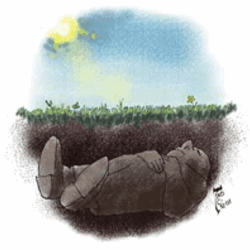Loading...
Click here if you don’t see subscription options
Click here if you don’t see subscription options
The Word
In the northern hemisphere November is traditionally associated with those who have died The flowers have wilted the leaves are dropping and the grass has ceased to grow The freshness of spring and the warmth of summer are distant memories Yet amid these signs of death there is the expectation
Faith in Focus
During the 2004 election campaigns, the U.S. bishops’ statement on political responsibility, Faithful Citizenship, came in for considerable criticism among a vocal segment of conservative Catholics. They believed that the document diluted the pro-life message of the church by not emphasizing i
Arts & CultureBooks
'Mexican-American Catholics,' reviewed
Faith
Saints are tests of our willingness to be thoroughly converted.
Editorials
It was both upsetting and perplexing to learn that Amnesty International has decided to support a right to abortion as part of its worldwide campaign to stop violence against women. How can an organization dedicated to the protection of human rights oppose the right to life of unborn children? The V
Recent court rulings have undermined the church's promise of confidentiality.
Arts & CultureFaith in Focus
“I wasn’t raised religious and I don’t know anything about religion,” he said in 2004.
Arts & CultureBooks
In an essay in Foreign Affairs January February 2007 Tony Blair argued not unpersuasively that in the war against global extremism w e chose values instead of security as our battleground By values he meant democratic values W henever countries are in the process of democratic development
FaithFaith in Focus
It was not until I was confirmed, at about age 10, that I got a chance to pick a name for myself—a second name, but still a name that, unlike my baptismal name, was my choice.
News
Catholics, Orthodox Complete Text on Church Authority Despite the absence of Russian Orthodox representatives, the international Catholic-Orthodox theological commission finished work on a document about church structure and authority. In a statement issued at the end of the Oct. 8-14 meeting in Rav
Five years ago, the scandal of sexual abuse of children by members of the clergy shook the Catholic Church in Boston and spread to other Catholic centers in the United States. In the interim much has been said and written: accusations and counteraccusations, expressions of outrage, prolonged litigat
Letters
Happiness Is a Warm Puppy I agree with Patricia Kossmanns Of Many Things column (10/1). When my mom and I both found ourselves widows, we moved in together and adopted a shelter dog. It was one of the best decisions we ever made. It had been half a century since wed had a dog, but Abby, an Australia
The Word
Today is a recurrent and important word in Lukes Gospel From Jesus inaugural discourse in the synagogue at Nazareth to his death resurrection and ascension today marks the time of Jesus ministry as a special time the center between the times of Israel and of the church a time when all the energ










